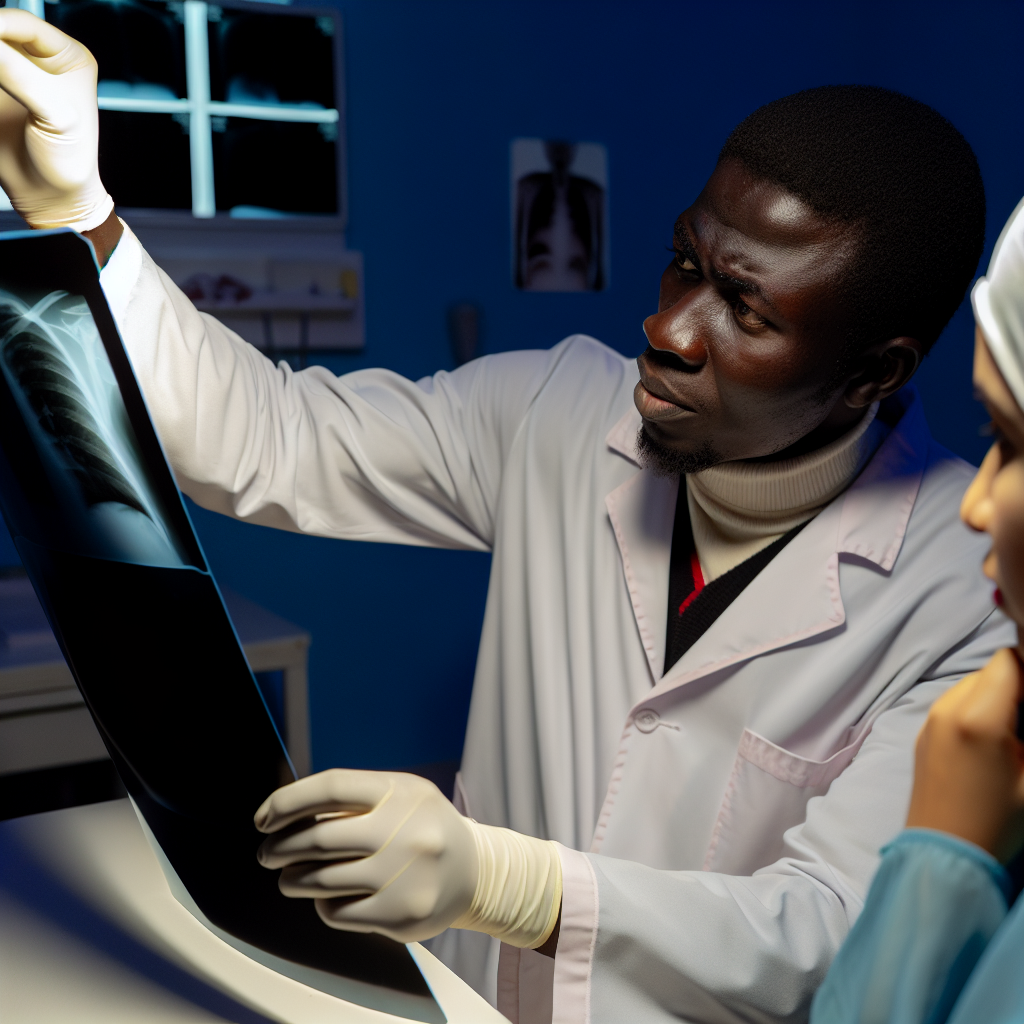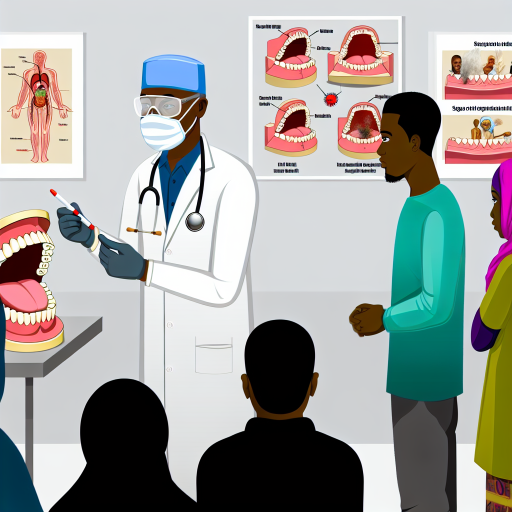Introduction
Radiography program accreditation is a crucial aspect of ensuring high-quality education in Nigeria.
Accreditation serves as a benchmark for evaluating the effectiveness and standards of radiography programs across the country.
Importance of accreditation in radiography programs
Accreditation ensures that radiography programs meet established criteria for curriculum, faculty qualifications, and resources.
It also validates the program’s commitment to continuous improvement and quality assurance.
Brief overview of radiography education in Nigeria
Radiography education in Nigeria is offered at various institutions, including universities and specialized training centers.
Students undergo rigorous training in anatomy, radiographic techniques, and patient care.
Current state of radiography program accreditation in Nigeria
The accreditation process for radiography programs in Nigeria lacks a uniform standard.
It is observed that different accrediting bodies have varying criteria for evaluating programs.
This lack of consistency leads to confusion among institutions seeking accreditation.
Students may be unsure about the quality of education they will receive from accredited programs.
Furthermore, this inconsistency can affect the reputation of radiography programs in the country.
Lack of standardized accreditation process
Another issue in the current state of radiography program accreditation in Nigeria is the inconsistencies in accreditation criteria.
Different accrediting bodies may prioritize different aspects of program evaluation.
This can result in some programs being accredited despite not meeting certain essential criteria.
Students may suffer as a result of these inconsistencies, as they may not receive the quality education they deserve.
The lack of clear and standardized criteria can also hinder the overall development of radiography programs in the country.
Implications for Radiography Education
The current state of radiography program accreditation in Nigeria is in need of reform.
It is essential to establish a uniform accreditation process with clear and consistent criteria.
This will ensure that students receive quality education and that radiography programs in the country maintain a high standard of excellence.
Through these reforms, the field of radiography in Nigeria can continue to grow and meet the evolving needs of the healthcare industry.
One of the significant challenges faced by radiography programs in Nigeria when seeking accreditation is inadequate resources and facilities.
Without proper equipment and tools, students are unable to gain practical experience.
Furthermore, the lack of qualified faculty members poses a challenge to these programs.
Experienced instructors are essential in providing quality education to students.
Another hurdle in obtaining accreditation is the limited access to clinical training sites.
Students need exposure to real-life situations to improve their skills and knowledge.
Inadequate Resources and Facilities:
- Inability to provide hands-on training.
- Lack of modern equipment for effective learning.
- Insufficient resources hinder program effectiveness.
Lack of Qualified Faculty:
- Shortage of experienced instructors.
- Inability to provide proper guidance to students.
- Lack of expertise impacts the quality of education.
Limited Access to Clinical Training Sites:
- Difficulty in finding suitable placements for students.
- Restriction in exposure to real-world scenarios.
- Lack of diverse experiences hinders student development.
It is evident that these challenges significantly impact the accreditation process for radiography programs in Nigeria.
Addressing these issues is crucial in enhancing the quality of education and training provided to future radiographers.
Gain More Insights: Government Programs for Child Dental Health
Impact of Lack of Accreditation on Radiography Students
Limited job opportunities: Without accreditation, graduates may find it challenging to secure employment in their field.
Inability to sit for certification exams: Accreditation is often a prerequisite for taking certification exams, which limits career advancement.
Decreased credibility of the program: Non-accredited programs may be viewed less favorably by potential employers and healthcare institutions.
- Limited job opportunities:
- Inability to sit for certification exams:
- Decreased credibility of the program:
Uncover the Details: Salary Expectations for Anatomical Pathologists in Nigeria
Efforts to Improve Radiography Program Accreditation in Nigeria
In order to enhance the quality of radiography programs in Nigeria, collaboration with international accreditation bodies is essential.
These bodies have experience and expertise in accreditation processes.
This partnership can help Nigerian radiography programs benchmark against global standards and best practices.
It also provides valuable insights on areas for improvement and innovation.
By aligning with international accreditation bodies, Nigerian radiography programs can raise their standards and reputation in the global healthcare community.
This can attract more students and faculty to participate in these programs.
Development of National Accreditation Standards
To ensure consistency and quality in radiography program accreditation, Nigeria should develop its own national accreditation standards.
Transform Your Career with Expert Guidance
Get personalized mentorship consulting that’s tailored to your unique path. Our expert advice is actionable and exclusive.
Get StartedThese standards should be based on best practices and input from key stakeholders.
By having national accreditation standards, Nigerian radiography programs can strive for excellence and meet the needs of the local healthcare industry.
This will also facilitate the recognition and acceptance of graduates in the domestic job market.
It will be crucial for the government, healthcare organizations, and educational institutions to collaborate in developing and implementing these standards.
This will require a comprehensive and transparent process to ensure credibility and effectiveness.
Capacity Building for Faculty and Program Administrators
In order to meet accreditation standards and improve the overall quality of radiography programs, capacity building for faculty and program administrators is vital.
This includes training on accreditation processes, curriculum development, and teaching methods.
By investing in the professional development of faculty and administrators, Nigerian radiography programs can enhance their teaching quality and student learning outcomes.
This will ultimately improve the overall reputation and competitiveness of these programs.
It is important for educational institutions and relevant stakeholders to prioritize ongoing training and support for faculty and administrators.
This will ensure that they have the knowledge and skills to maintain accreditation requirements and drive continuous improvement.
See Related Content: Dental Therapist-Patient Relationship in Nigeria

Success stories of accredited radiography programs in Nigeria
- Improved program quality
- Increased employment opportunities for graduates
- Recognition by professional bodies
Improved program quality
Accreditation ensures that radiography programs in Nigeria meet specific quality standards set by accrediting bodies.
As a result, accredited programs are constantly evaluated and updated to reflect current practices in the field.
This leads to improved program quality, ensuring that graduates receive a comprehensive education that prepares them for successful careers in radiography.
Increased employment opportunities for graduates
Employers in the healthcare industry prefer to hire graduates from accredited radiography programs.
They are perceived to have received a higher quality education.
Graduates of accredited programs are more likely to secure job placements and advancement opportunities.
This translates to increased employment opportunities for graduates, providing them with a competitive edge in the job market.
Recognition by professional bodies
Accredited radiography programs in Nigeria are recognized by professional bodies such as the Radiographers Registration Board of Nigeria (RRBN).
This recognition signifies that the program meets the standards and requirements necessary for students to become registered radiographers.
Graduates from accredited programs are eligible for professional certification and licensure, which enhances their credibility and employability in the field.
You Might Also Like: Online Resources for Anatomy Students in Nigeria
Importance of Accreditation in Radiography Education
The importance of accreditation in ensuring quality radiography education cannot be overstated.
Accreditation ensures that programs meet defined standards.
It provides students with the knowledge and skills needed to succeed in the field.
Stakeholders in the radiography field must support accreditation efforts.
This support ensures that students receive a high-quality education that meets industry standards.
Looking to the future, accreditation will continue to play a crucial role.
This role shapes radiography education in Nigeria.
With ongoing support and collaboration, the field can continue to grow.
It will evolve to meet the needs of both students and the healthcare industry.
Additional Resources
International Inquiries – ARRT
Foreign trained radiologic technologist wants to know how to …




